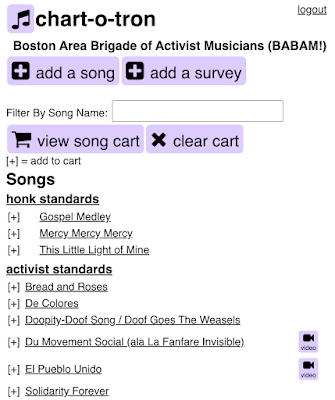I've always been interested in personal information management - the tools and tech people use to keep track of what they need to do and things they want to keep track of over the long haul.
Yesterday I spent a few happy hours on some long overdue updates to "jkdb", a bespoke data table editor I keep on my personal site. (It's a little bit like a series of excel sheets, but I never liked how Excel handled wrapping and columns, plus each sheet has more specific form inputs.) I've been using it for YEARS, for password tracking, media journaling, etc, and now its tables finally have "in place" editing so I don't have to bounce to a different screen to add or edit. (Like I said, I made this thing a long time ago)
Since I first made jkdb, a number of apps have emerged covering similar spaces, but with a UX encouraging different uses. Here are the best I've integrated into my life, things that have proven their reliability over the years:
Simplenote: an incredibly minimalist, multiplatform pure text editor with awesome syncing. Has a great web interface as well as desktop and mobile clients. Automattic has been running it as a free service for years, but even if they dropped it, they make it easy to export *en masse*. No folders; it relies on fast search and tags. (It's kind of like the old days when you might have a giant directory of notepad.exe txt files, but faster) I like it better and trust it more than more graphical products such as Evernote or Apple Notes. (Apple notes is my favorite sketch pad, though.)
Tot: an even MORE minimalist text editor, syncing across Mac and iOS. You get 7 color coded memos- no more, no less. It's free on Mac and a one time fee on iOS. I find it awesome as a free form todo list, always at hand on Mac menubar or iPhone homescreen. I use the first memo for general Todo, and other pages for "media to see" or "music to get" etc.
2Do: Solid classic "checkbox" task tracker. Tot's free form text is great for most things but some tasks recur or should show up in a time-sensitive way, and 2Do nails it. It has the best UI I've found for having tasks in different Categories, but displaying the contents of all categories on a single scrollable list, without having to click on it. (Just added it as a homescreen widget)
Google Docs: this is my favorite for anything I have to share and co-edit with others. Its iOS client is a bit wonky, but in general it's a great and accessible choice.
So those are my 4 favorite information management apps, plus my homebrew solution - each has a specialty and it's almost oddly easy to get the muscle memory of what information is living where.
What apps would you advocate for, and what makes them stand out from others?
(Usual plug: I'm a React/Node/Typescript saavy UI to middle layer developer looking for a fulltime gig in Boston, Remote, or Hybrid... if you your team likes the idea of a programmer who really thinks about interactions and enjoys making ideas into code, hit me up!)









